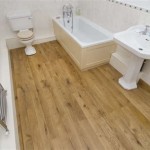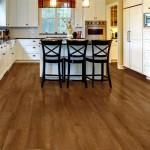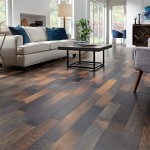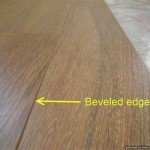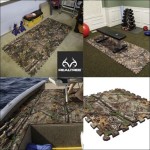Essential Aspects of Cargo Trailer Flooring Ideas
Cargo trailers serve as valuable assets for transporting goods, whether for commercial or personal use. Ensuring the trailer's durability and functionality is crucial, and a key factor in achieving this is the selection of suitable flooring.
Choosing the right cargo trailer flooring material and design depends on several factors, including the intended use of the trailer, the weight of the cargo, and the desired level of durability. Various options are available, each offering unique advantages and considerations.
Types of Cargo Trailer Flooring Materials
- Wood: Known for its cost-effectiveness and versatility, wood is a popular choice for cargo trailers. It provides a solid base for cargo and is easy to install. However, it can be susceptible to moisture damage and wear over time. - Sheet Metal: Sheet metal flooring is durable, resistant to moisture, and easy to clean. It can withstand heavy loads, making it suitable for transporting heavy equipment or machinery. However, it may be noisy and can conduct heat, affecting temperature-sensitive cargo. - Aluminum: Aluminum flooring combines strength, durability, and corrosion resistance, making it an excellent option for long-lasting trailers. It is lightweight, which can improve fuel efficiency. However, aluminum can be more expensive than other materials. - Composite Materials: Composite panels consist of fiberglass reinforced plastic (FRP) or other synthetic materials. They offer high strength-to-weight ratios, moisture resistance, and easy maintenance. Composite flooring is a premium option that provides both durability and aesthetics.Flooring Design Considerations
- Load Capacity: Determine the maximum weight the trailer will be carrying. The flooring material and thickness must be able to support the load without compromising integrity. - Moisture Resistance: If the cargo is likely to be affected by moisture, such as perishable goods or construction materials, moisture-resistant flooring is essential. Consider sheet metal, aluminum, or composite materials for optimal protection. - Thermal Insulation: Temperature-sensitive cargo may require insulated flooring to maintain the desired temperature. Insulation can be added between the subfloor and flooring material to minimize heat transfer. - Slip Resistance: Flooring with anti-slip properties is recommended, especially for trailers used to transport heavy or hazardous materials. This ensures safety during loading and unloading. - Installation and Maintenance: Consider the ease of installation and maintenance when selecting flooring. Some materials, like sheet metal, require specialized tools and expertise for installation. Others, like wood, may require regular sealing or refinishing to maintain their condition.Conclusion
Selecting the right cargo trailer flooring is crucial for the longevity, functionality, and safety of the trailer. By considering the intended use, cargo weight, and design requirements, informed decisions can be made to ensure the flooring meets the specific needs of the trailer. Whether it's cost-effective wood, durable sheet metal, lightweight aluminum, or premium composite materials, the flooring should provide a solid foundation for cargo transportation while maximizing the value of the investment.
Trailer Flooring Sports Utility Trailers Enclosed Open

Trailer Flooring Guide
Flooring For Enclosed Trailer The Garage Journal

Trailer Flooring Guide

Result For 6x12 Enclosed Trailer Floor Ideas Motorcycle Shelving

Diy Ultimate Trailer Flooring Install Featuring G Floor Small Coin Laminate Build

Best Flooring Materials For Enclosed Trailers

Result For Best Enclosed Trailer Floor Paint Trailers Car Hauler Cargo Camper

How To Protect Your Trailer Floor Better Life Technology

Home Page Decktred Durable And Versatile Trailer Flooring
Related Posts



